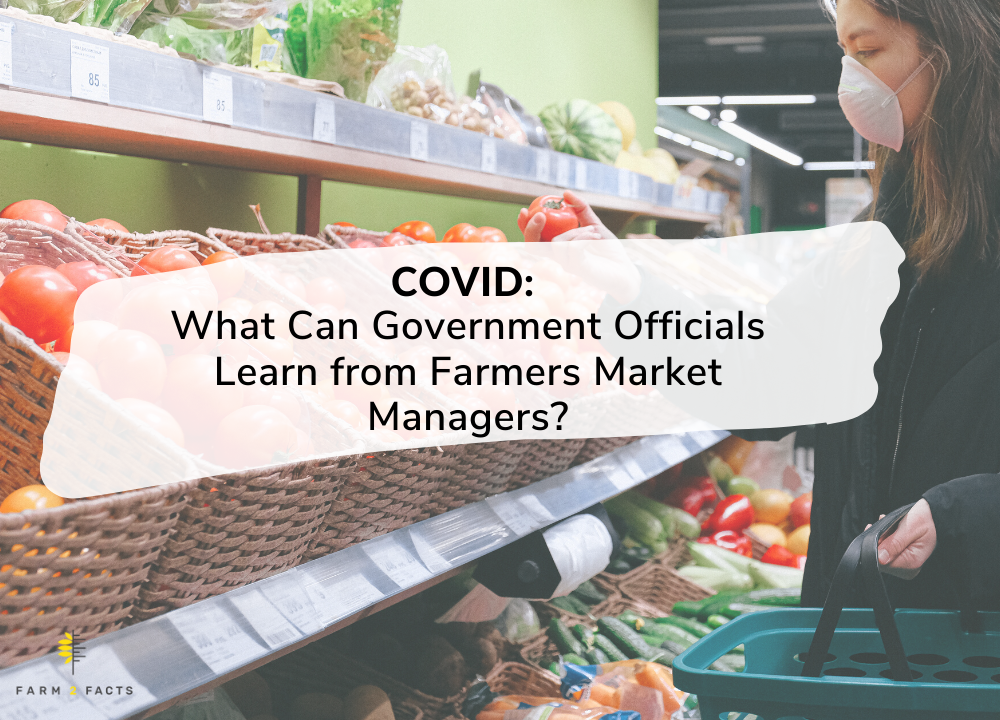
Farmers market managers and governors around the country have to push back against unrealistic government pronouncements, both must transform limited resources into economic and social health, and both must balance strong rules with principles that support creative responses to the demanding circumstances of COVID. Problem solving market managers deftly dance between vendors, consumers, and government, practicing creativity-in-context producing farmers markets that in turn craft a healthier society.
The “Drive-thru” markets and online marketplaces display managers creative efforts and fulfill economic and food security ,but unfortunately don’t fulfill the educational, social, and political reasons people visit markets. These organizational models and technological tools are stop-gaps.
These market alternatives will play a role post-COVID, but waiting in line at familiar places leaves people wanting for the market interactions they miss. Market managers recognize their markets are more than economic opportunities and so they wait patiently for principles they can follow in designing locally-relevant responses to our rapidly changing circumstances. Government should harness that creativity.
Farmers markets operate on a few simple principles:
- They connect locally produced crafts and foods with consumers.
- They are places consumers practice community.
- They convey information and opportunities people will discover and make their own.
These principles are realized in creative market management practices that permit managers to pivot swiftly in response to emergency situations. Market managers don’t have to rethink their business model, they don’t have to reimagine their organizational practices, or rebuild complex supply chains. Indeed, they are ready to engage government in formulating realistic expectations for marketplaces. In turn, they can communicate expectations to vendors and visitors who will help produce a market that minimizes risk and provides local products, practice in community building, and opportunities for learning.
Government agencies need to formulate rules, but those should be few, instead focus on dialog with managers to formulate principles and communicate across agencies to avoid producing contradictory and unenforceable rules. In Wisconsin, the department of Agriculture Trade and Consumer Protection produced a 15-point list of rules farmers markets must follow. In contrast, the Department of Health Services produced a four-point list, occasionally the two lists contradicted each other. Goodness. Both lists recognized the farmers markets, in Wisconsin anyway, as essential services, but neither pronouncement championed and endorsed farmers market managers experimentation with and sharing of the variety of ways to meet government expectations. We need market manager/government partnerships creatively applying principles and responding to rules.
For generations, marketplaces have contributed to the community in many ways:
- Promoted individual and public health,
- Served as conduits for information and healthy food,
- Offered opportunities for exercise and social life,
- Provided learning opportunities for immigrants and every other sector of a community.
In short, the COVID crisis clarifies how essential farmers markets have always been for local producers and consumers alike. Farmers markets (and Community Supported Agriculture farms) play a critical role in our increasingly vulnerable food system. Now is the time for state and local government to ask how to strengthen farmers markets in this crucial moment and going forward. State and local government need to understand how this creativity serves public purposes. Marketplaces, farmers markets in particular, are all about health and wellness. Likewise, government regulators foster the common good, but their pronouncements are not moments in a dialogue or information intended to release the creativity of market managers. Those managers providing their essential service, are best positioned to work with consumers and vendors in optimizing the mix of healthy economic activity, learning, and social activities that are inclusive and safe.
Alfonso Morales, PhD
Vilas Distinguished Achievement Professor – UW-Madison
To download a PDF copy of this blog, click HERE.
